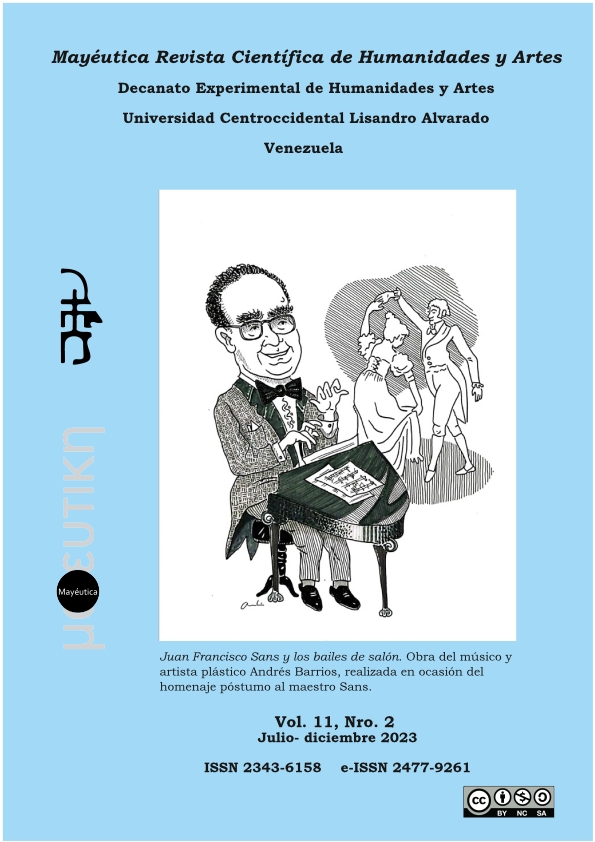Reggae y rastafari. Dos formas de entender el Caribe
Written by Juan David Chacón Benítez and César Cortez Méndez
DOI:
https://doi.org/10.5281/zenodo.8313337Keywords:
reggae, rastafari, CaribbeanAbstract
This text is a critical review of the book Reggae y rastafari. Dos formas de entender el Caribe, written by Juan David Chacón Benítez and César Cortez Méndez. The authors reconstruct the history of Rastafari culture from the origins of the African presence in the Caribbean, analyze its impact in the region and study reggae as a musical expression, the role of record labels in its commercialization and the variants of this rhythm throughout its history.
Downloads
References
Abel, D.F. (1985). Bob Marley – Reggae. Editorial La Máscara.
Anderson, R. (2004). Reggae Music: A History and Selective Discography. Notes. 61 (1). 206- 214.https://doi.org/10.4000/etudescaribeennes.4740
Barrington Edmonds, E. (1994). Rastafari: From Outcasts to Culture Bears. Oxford University Press.
Bradley, L. (2015). Bass culture: la historia del reggae. Acuarela Libros.
Chacón Benítez, J. D. y Cortez Méndez, C. (2022). Reggae y Rastafari. Dos formas de entender el Caribe. OT editores.
Chevannes, B. (1994). Rastafari: Roots and Ideology. Syracuse University Press.
Kapuscinski, R. (1980). El emperador, la historia del extrañísimo señor de Etiopia. Siglo XXI.
Kroubo Dagnini, J. (2010). The Importance of Reggae Music in the Worldwide Cultural Universe. Études caribéens. 16, 40-47.
O’Brien Chang, K. y Chen, W. (1998).Reggae Routes: The Story of Jamaican Music. Temple University Press.
Leymarie, I. (2015). Del tango al reggae. Músicas negras en América Latina y del Caribe. Universidad de Zaragoza.
Monty, C. (1993). Bob Marley Positive Vibration. Editorial La Máscara.
Prahald, Anand. (2001). Reggae Wisdom: Proverbs in Jamaican Music. University Press of Mississippi.
Rondón, C.M, (1980). El libro de la salsa. Crónica de la música del Caribe urbano. OT Editores.
Sabelli, S. (2011). ‘Dubbing di diaspora’: gender and reggae music inna Babylon. Journall for the Study of Race Nation and Culture. 17 (1), 132-152. https://doi.org/10.1080/13504630.2011.531910
Serbín, A. (1987). Etnicidad, clase y nación en la cultura política del Caribe de habla inglesa. Biblioteca de la Academia Nacional de la Historia.
Published
How to Cite
Issue
Section
Copyright (c) 2023 Luis Pérez Valero

This work is licensed under a Creative Commons Attribution-NonCommercial-ShareAlike 4.0 International License.





